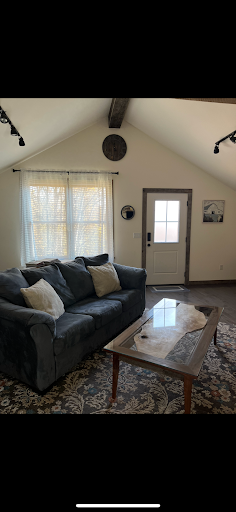By Becca Andrews, News Staff Writer
[email protected]
9/16/2015
In Asheville, small, independent businesses are part of local culture. Each street has unique restaurants, shops and businesses. But survey results from a website called Thumbtack questions how well Asheville fosters these businesses.
Thumbtack is a website that connects customers in need of a service to local professionals and small business owners. It includes home, wellness, lessons and events categories and lists the services of professionals from disc jockeys to electricians. For the past two years, Thumbtack has been running a survey, asking small business owners who use the website how friendly their city is to small businesses.
“We took a survey of about 18,000 small business owners across the United States and we asked them to tell us what they thought about the local government where they operated. We ask them questions about regulatory environment, how helpful training and networking opportunities were, if the website was functional, if they were able to get their business up and running and hire the employees they needed quickly,” Jon Lieber said. “We use all these factors to compute an overall score that sort of judges the friendliness of small business in cities across the country.”
Lieber, chief economist for Thumbtack, said Asheville’s overall grade of a C is pulled down by its C+ score for its regulatory environment, and a C grade for the ease of starting a business. Factors that affect these scores are the complexity of tax codes, and the ease of obtaining and maintaining a business license.
Dorsey Ridgely, owner of Team Green Cleaning, said she remembers being audited for a tax she did not know existed.
Ridgely said a tax representative informed them they were paying their use taxes improperly. Ridgely did not know that all equipment not for sale was subject to taxation.
“I said, ‘Okay then, everything in here, including me is for sale,’” Ridgely said.
According to the North Carolina Department of Revenue, the state sales and use tax rate is 4.75 percent as of April 1. The local Buncombe county tax adds 2.25 percent to bring the total rate to 7 percent. The state income tax is 6.9 percent.
Gerry Seymour, local business consultant and coach, said he deals with small businesses across North Carolina, and tax and insurance complaints are common.
“Even for my business, and the kind of insurance for mine is real minimal, you’re looking at a couple thousand dollars a year for insurance,” Seymour said. “And for someone starting a new business or for new businesses that is struggling the number feels big. In reality, if a business is doing a couple hundred thousand a year, a couple thousand dollars gets lost in that.”
Seymour previously lived and worked in Charlotte, which received a B- on the survey. This difference in score may be a matter of perception, because different businesses are attracted to different cities, said Seymour.
“If you’re founding a brick-and-mortar business that you expect to grow fairly quickly over time, you’ll make a large upfront investment, then Charlotte’s easier. If you’re talking about a shoestring business that you’re going to start with a small investment and live off of the income from, Asheville’s easier,” Seymour said. “We walk down the street in Asheville or even downtown Henderson and we don’t expect to see businesses with a chain name, in Charlotte people expect the chains.”
Although Charlotte is larger than Asheville, Seymour says Asheville has a more diverse consumer base that makes it hard for a small business to have mass appeal. A business that appeals to the traditional agricultural base, or an artsy base, might struggle to draw customers from another base.
Graphic designer David Lynch worked in Asheville for nearly 18 years. He said he thought Asheville’s diversity is part of what gives the city its character. He said it recently seems to be trending towards higher-end customers and tourism. He said he recommends pushing against the state government.
According to the Asheville government website, the city is no longer able to levy the privilege license tax, or the tax on business licenses. This went into effect July 1, and the only exception is beer and wine taxes. Lynch said he does not like the loss of revenue for the city.
“They are neutering the power of municipal government and that’s the sort of power that keeps Asheville local. I’m seeing that change,” Lynch said, “and I’m afraid Asheville is going to lose its local flavor and become another stain on the map on the United States of Generica if we’re not careful.”
Lynch recommends that, in order to maintain the small business atmosphere in Asheville, businesses need to do research, get connected, find local resources and networking opportunities. Asheville received a B grade on the Thumbtack survey for its training and networking opportunities.
Ridgely said she used Mountain Bizworks and Business Networking International. These organizations exist to help coach and grow small businesses. Seymour recommends resources and job training provided by Goodwill and SCORE, the Service Corps of Retired Executives. He said he is planning to partner with Bill Gilliland of ActionCOACH to provide coaching for small businesses and wishes there were an easier way for Asheville business owners to find this information.
“You look through meet-ups and you find a few of those, you do Google searches and you find a few of those, but unless someone shows what’s available most businesses have no way to compare them,” Seymour said. “In my ideal world I would be able to type in ‘business networking meeting in Asheville’ and get a listing that would have some reviews and some description. That kind of layout would help small business owners find those groups.”
Ridgely said she would like to see more services to help find and hire qualified employees.
“There’s Craigslist and Headhunters, but it all costs a lot of money and is not affordable for a small business. They want $1,000 for an employee and I can’t afford to do that. I tried the unemployment office and that was really no great help at all. They wouldn’t even post my ad,” Ridgely said. “If there was a system to find employees who matched with me that would be phenomenal. There’s equipment you’ve got to know and the right cleaners for the right job and you have to be detailed.”
Lieber said the survey found that cities with good networking and training often receive a higher score, whereas cities with many regulations receive lower scores. The survey’s goal is to find what is most important to small business and improve their local environments.
“Entrepreneurship is an important outlet not just because all fast growing businesses are the ones creating those jobs and providing promise for the future, but because the kind of micro-entrepreneurship that happens on Thumbtack really gives people alternatives. It gives them the chance to be independent, to work for themselves, to build a business on their own and to serve their community by sharing their skill.”
Despite Asheville’s below-average score, Ridgely said she finds the city to be no less friendly than other places she lived.
“People are saying ‘it’s hard, it’s hard.’ I’m not that kind of person. Don’t just sit around worrying and crying. You have to want to do it, you have to have drive,” Ridgely said. “If I work for someone else the levels of skill and creativity I have doesn’t get utilized. I can say I’m not scared sometimes, but I let the adrenaline of the fear push me forward rather than get me down.”
Latest Stories
- UNCA League of Legends takes first in stunning finals match against HPU
- From passion to professional play: How a UNCA League of Legends MVP hit their stride
- Old UNCA sorority still has its footprints on campus
- Mass communication students visit Charlotte to watch Hornets game
- Blue Banner Connections #1
- Sex toys get luckier than traditionalist men
- A student's perspective on traveling and concerts
- Local bead and craft store continues to thrive under new management
- Taylor Swift’s rising stardom causes friction between fans
- Ensuring AI makes appropriate decisions


















James Fly • May 13, 2017 at 4:35 pm
Welcome To Cooperative Community Project Who we are is simple. We are going to build community’s similar to Hutterite or Mennonite community without the religious aspect. We will have no money or currency of any kind going through the community. All positions are voluntary, we will have store houses where all the supplies will go and when you need food, clothing, or more, it’s there for you to have without having to worry about affording it. We plan to build log cabins and a community center and more. The Cooperative Community Project community will also be able help the homeless and the poor with this Project we plan to do that. It’s no lie that we have lots of people living on the streets and in lots of poverty. Cooperative Community Project plans to help change this by offering people a new opportunity to make a better way of life for themselves in northern Saskatchewan with housing, food, clothing and much more. Everyone knows this saying – you give a man a fish, he eats for a day, you teach a man how to fish, he eats for a lifetime. Please open up your heart and your wallet and donate on our website, thanks. Please check out our pages: http://coopcommunity.ca/council-community-government/ http://coopcommunity.ca/store-house/ http://coopcommunity.ca/bylaws-of-the-community/ http://coopcommunity.ca/apply/